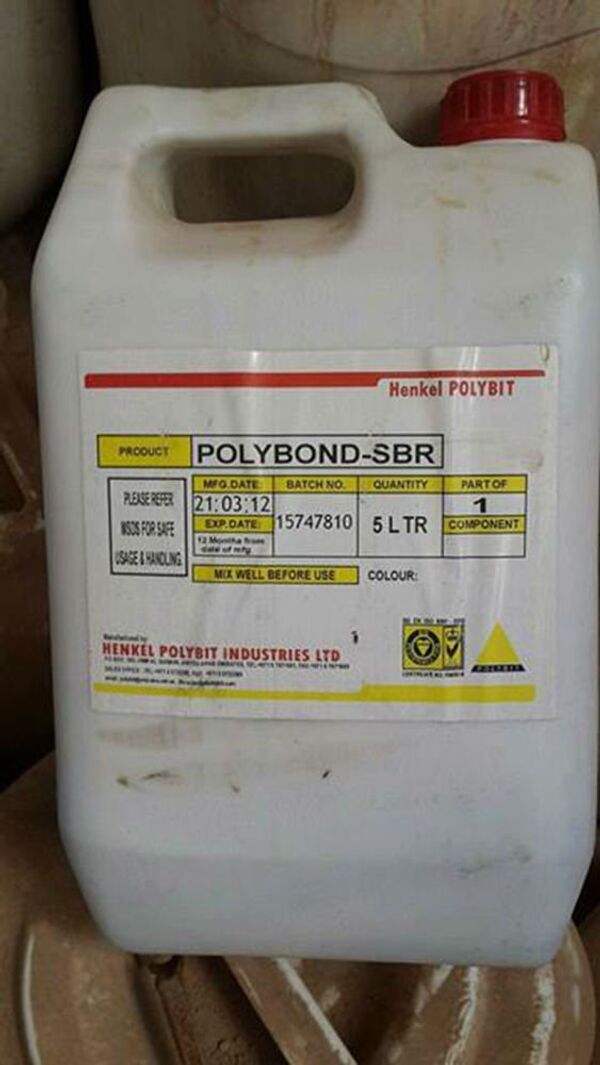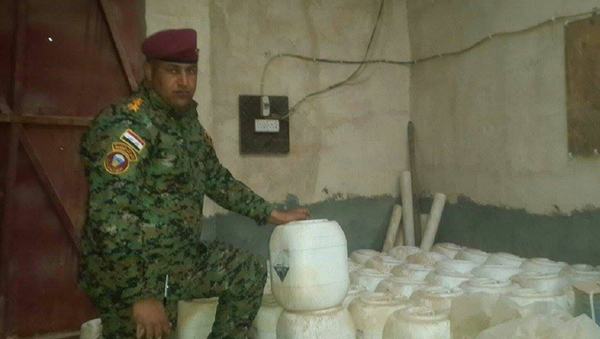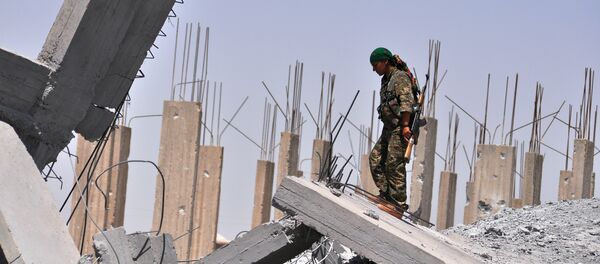In the video, an officer of the national militia not only pointed to the canisters containing the dangerous substance, but also showed the procedure that the militants used to produce these chemical weapons. They charged their missiles and mines with it.
“This is a so-called mixer. The common people call it the ‘beater’. Over here the chemicals were mixed with secondary raw materials in order to fill them into mines and rockets, which they (Daesh) then launched at the security forces and civilians,” the officers of the national militia said.
According to the video, in addition, there were cans of a substance called phenyltrichlorosilane, which falls under the UN classification of ‘corrosive substance’. The substance is corrosive to human flesh and to metal. The bottles were found with Polyolefins Polybond which was used as a secondary raw material by mixing it with phenyltrichlorosilane.
This warehouse was found not far from the previous warehouse in an industrial area. It was an adapted building, which used to be a residential house belonging to a family of refugees. Militants of Daesh decided to remake it as a warehouse for storing chemical weapons.
“Militia discovered this warehouse in the industrial area of the city of Ramadi in the process of demining houses that the militants had mined before their defeat by the Iraqi armed forces and the people's militia,” the source said.
Earlier, the people's militia in Iraq's Anbar province found two warehouses with the substance phenyltrichlorosilane that belonged to the militants.

On February 11, 2016 on the outskirts of Iraq's Sinjar the militants of Daesh used this chemical against the Kurdish militia of Peshmerga and Yezidi militia. The attack resulted in 23 people choking and receiving skin burns. The wounded were taken to a hospital in the city of Dohuk in Iraqi Kurdistan.
Daesh is a brutal terrorist group controlling large oil-rich areas in Iraq, Syria and Libya, with the goal of becoming a "caliphate". Daesh has received a large part of its revenues from smuggling oil, in addition to antiquities, human organs trafficking, taxes and ransom payments.



